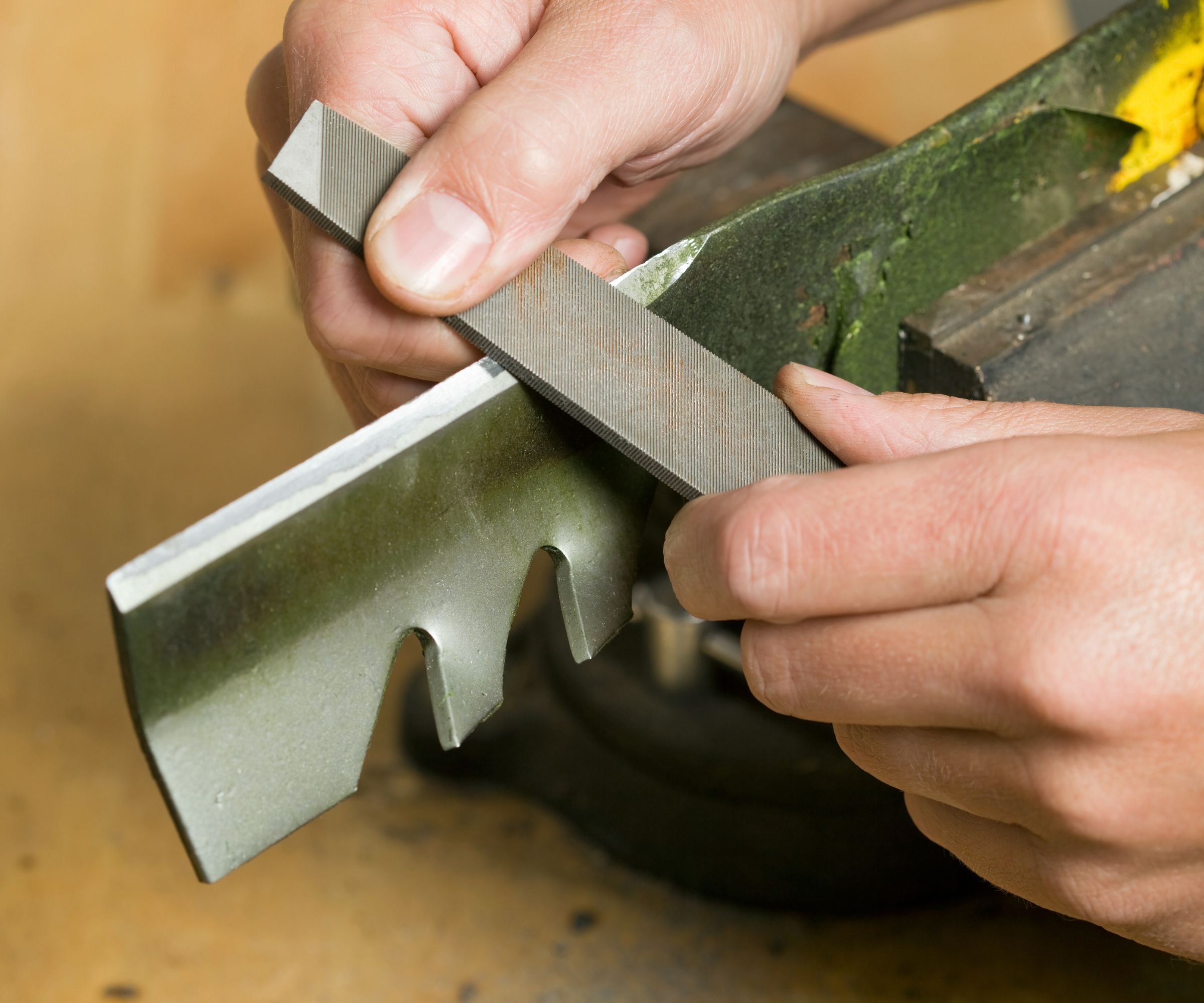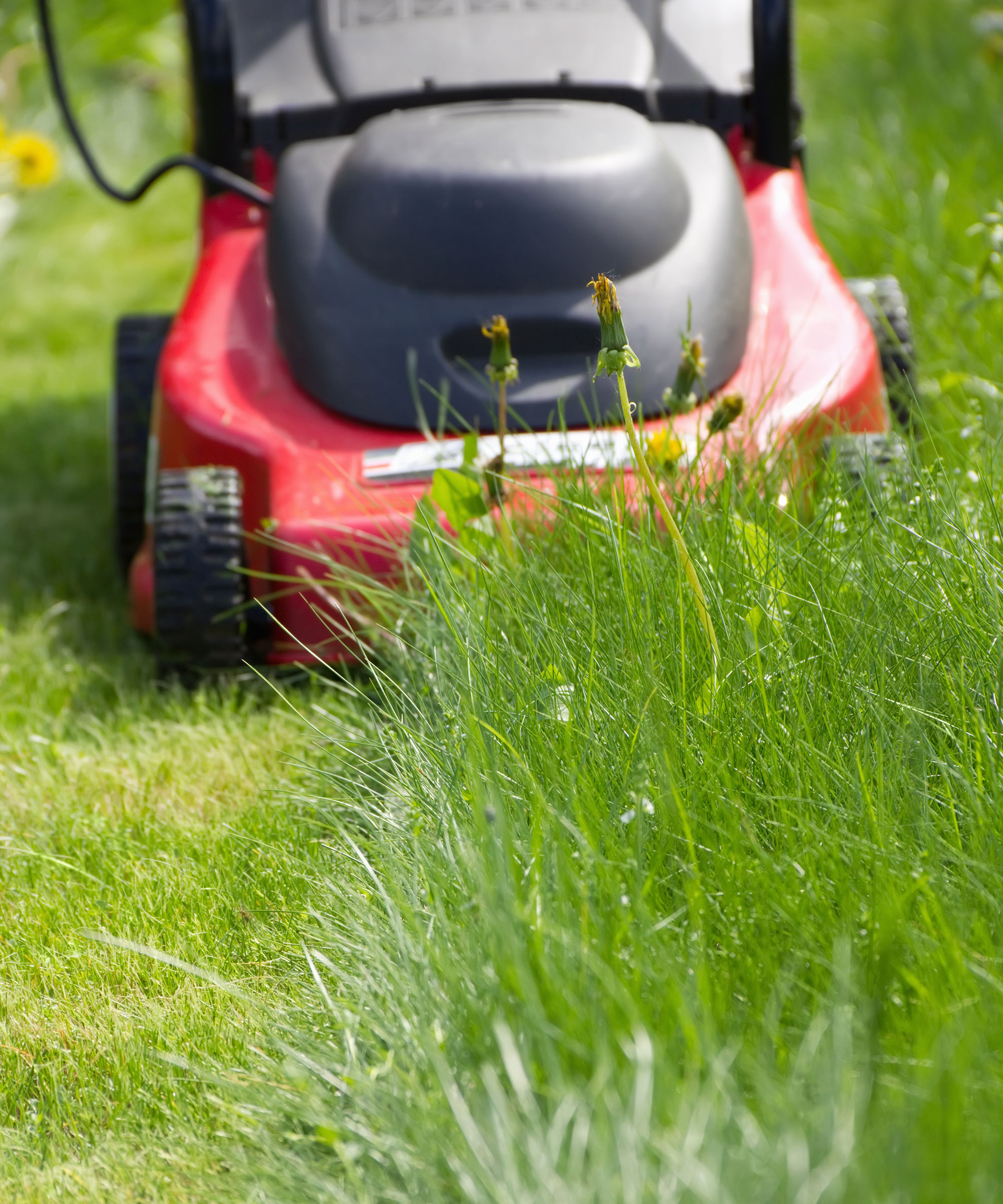
Spring is finally back and that means the start of the mowing season. If you've looked out back at your yard and the grass feels high, you'll be revving up your mower to cut it all back down to size.
As you prepare your mower for the months of lawn care ahead, it's wise to sharpen the blades to make sure the cut is as precise as possible. If you're anything like me, you'll be tempted to hone the blades as sharply as you can to ensure that your lawn is level.
However, sharpening your lawn mower blades too much could damage your grass. What's more, it could even pose a hazard. As a gardening writer, I've used and tested dozens of the best lawnmowers in my career, so I know first-hand the dangers of over-sharpening lawnmower blades. I spoke to other experts to get the low down on over-sharpening your lawnmower blades, and how to keep your grass from any damage.
Why shouldn't your lawnmower blades be too sharp?

Sharpening your lawn mower blades too much is a common lawn care mistake. It's one that I used to do myself. The logic seems obvious, or at least it did to me. Surely a razor-sharp blade will make a lawn you can measure with a spirit level? Surely the sharpest possible blade makes for the neatest cut?
This is a misconception. If your lawnmower blades are too sharp, you're just making work for yourself. When the blade inevitably catches on a stone or a rock, it will be far more likely to chip or break.
Gardening expert and content editor at Homes & Gardens, Drew Swainston, told me that 'the biggest downside to lawn mower blades being too sharp is that they will get duller faster. The quicker the blades dull, the more they will need to be sharpened and that will mean a shorter overall life for your mower blades'.
All the work you just put into perfecting your blade will have been for nothing; a blade that's chipped or curled over on itself won't cut the grass. Instead, it will pull and tear at it, making for rough, unhealthy grass and a patchy lawn.
More importantly, it also poses a danger, because you might end up with chips of steel in your grass, which might be harmful for pets or kids playing on the lawn.
What's more, a sharp blade doesn't result in a noticeably closer cut. Drew adds that 'a really sharp blade will not cut better than a blade sharpened to a sufficient level - they do not need to be razor-sharp to do a good job'. You don't even need any specialist equipment. A hand file or a cheap multipurpose sharpener like this one at Amazon will do a perfectly good job.
How do I know if my lawnmower blades are too sharp?

Lawn expert Bryan Clayton gave me a good tip for this. He says that 'a good rule of thumb is the blade should be sharp enough that you'd hesitate to run your finger across it, but not so sharp it slices easily through paper'.
He adds that 'you want them sharp enough to cleanly cut the grass, not so sharp you could shave with them'. Any sharper than this, and the blades are likely to chip and crack, and you're back to square one, but if they're too dull, you won't be effectively cutting your grass.
Shop lawn mowers
This is my go-to lawn mower recommendation. It cuts incredibly closely, it's lightweight and easy to manoeuvre, and it's surprisingly good value. It won't stand up to a top-line steel-deck mower, but if you need something inexpensive that gets the job done, you won't go wrong with this.
If you want to take your mowing to the next level, this is the best cordless I've ever used. Self-propelled, it's incredibly easy to use, and delivers an incredibly neat cut. It has a mulching blade that's great for ensuring a healthy lawn, and if that's not enough, it even has headlights. The trade-off here is that it's pretty expensive.
This isn't the best lawn mower I've ever used, but it's pretty good, and I couldn't get past the value of this bundle deal. You get a leaf blower, trimmer, and lawn mower for under $500, which is fantastic value if you're new to lawncare and gardening.
Are plastic blades on lawn mowers better?

The issues with over-sharpening shouldn't have you running off to buy a hover mower with plastic blades. I've used a few of these over the years, and while they're great for saving a little money, they're bad for the health of your lawn.
That's because plastic blades don't cut. Technically, they tear the grass. You can't tell with the naked eye, but rather than slicing through the leaves, they knock off the top. That can cause damage and fraying throughout the plant, so when summer comes and bakes the ground your grass is more likely to be yellow and brittle.
Lawn expert Bryan Clayton agrees. He says that plastic blades 'just don't cut the mustard – or the grass, for that matter. You end up tearing the grass instead of cutting it, which opens the door for disease and makes your lawn look ragged and unhealthy.'
FAQs
Can I sharpen lawn mower blades with a file?
Yes, you can sharpen lawn mower blades with a hand file. You can also use an angle file or a a dremel.
What's the right angle for sharpening lawnmower blades?
Sharpening lawn mower blades isn't much different to sharpening a knife. You need to come at the blade from a roughly 45 degree angle.
There are lots of things you can do now to get your lawn into perfect shape for the summer months. Knowing when to fertilize a lawn in spring may also be beneficial if you think your grass is in need of a quick nutrient boost.







